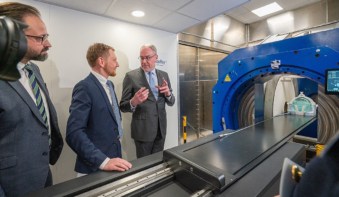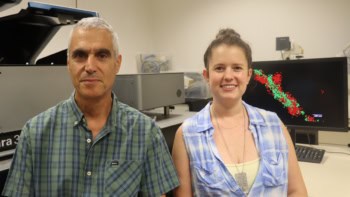Welcome to the latest in a new series of sponsored articles showcasing some of the latest white papers and webinars from physics-based businesses around the world

This time we are featuring white papers, case studies and a webinar from RaySearch Laboratories.

The machine learning planning module in RayStation* can generate one or multiple deliverable treatment plans in just minutes. The automated treatment planning method learns from historical patient and plan data, and infers a 3D spatial dose on a new patient geometry. This new approach to planning can improve efficiency, reduce treatment plan variability and facilitate knowledge sharing. The white paper, Machine learning automated treatment planning, introduces RayStation’s machine learning planning module and describes a clinical study on head-and-neck cancer cases conducted at University Medical Center Groningen.

Provision CARES Proton Therapy in Nashville, USA, is the first clinic to connect the oncology information system RayCare* directly to the treatment delivery system, using it to record and verify the treatment sessions. In 2018, Provision also became the first clinic worldwide to use RaySearch software exclusively. In the case study, Optimizing the patient journey with RayCare, the Provision team describe their experience of using RayCare and how the system meets the clinic’s specific needs.

High-quality contours of anatomical structures are a vital aspect of radiation therapy, but the process of manually delineating regions-of-interest is time-consuming and suffers from inter- and intra-practitioner variability. With the automatic tools in RayStation, this process can be greatly simplified. The latest technique is deep-learning segmentation, which is able to learn from an unlimited number of patients and still automatically generate contours of all relevant regions-of-interests in under a minute. This approach, described in the white paper Deep-learning segmentation, provides a highly powerful tool for patient modelling in RayStation.

University Medical Center Groningen (UMCG) has teamed up with RaySearch to evaluate the first fully automated machine learning framework for generating robust treatment plans. The case study, Automated robust planning for IMPT in HN cancer using machine learning, describes the use of machine learning to create robust intensity modulated proton (IMPT) plans for oropharyngeal cancer patients. The robust machine learning planning framework* will be clinically available in the RayStation 10B release in December 2020.

Treatment planning for radiation therapy inevitably involves compromises between dose to the tumour volume and sparing of healthy structures. These trade-offs are conventionally handled using trial and error, where parameters such as objective function weights are adjusted and the treatment plan is reoptimized multiple times. Manual parameter tuning is inefficient, and the quality of the result dependent upon the experience and skill of the treatment planner. The white paper Multi-criteria optimization in RayStation introduces the use of multi-criteria optimization (MCO) in treatment planning to provides a more streamlined and intuitive workflow. With MCO, the clinical plan is selected by continuous navigation over the set of possible plans, enabling clinicians to make informed and structured treatment decisions.

Information systems at hospitals support the collection and communication of everything from patient tracking to billing information and treatment history. Commonly, there are multiple information systems, which should seamlessly communicate with each other to support efficient and safe care by avoiding manual transfer of data between hospital systems. The RayCare oncology information system is designed for integration with external healthcare information systems, such as EPIC. The white paper, RayCare connectivity, explores the integration of RayCare between hospital information systems to support a complete view of the patient’s data for clinicians.

Finally, RaySearch presents the webinar Machine learning in radiation oncology. In this virtual product unveiling for ESTRO 2020, Fredrik Löfman and the machine learning team at RaySearch discuss machine learning, including the deep learning segmentation application, machine learning planning and a brief introduction to RaySearch’s latest innovation, RayIntelligence.
*Subject to regulatory clearance in some markets.




